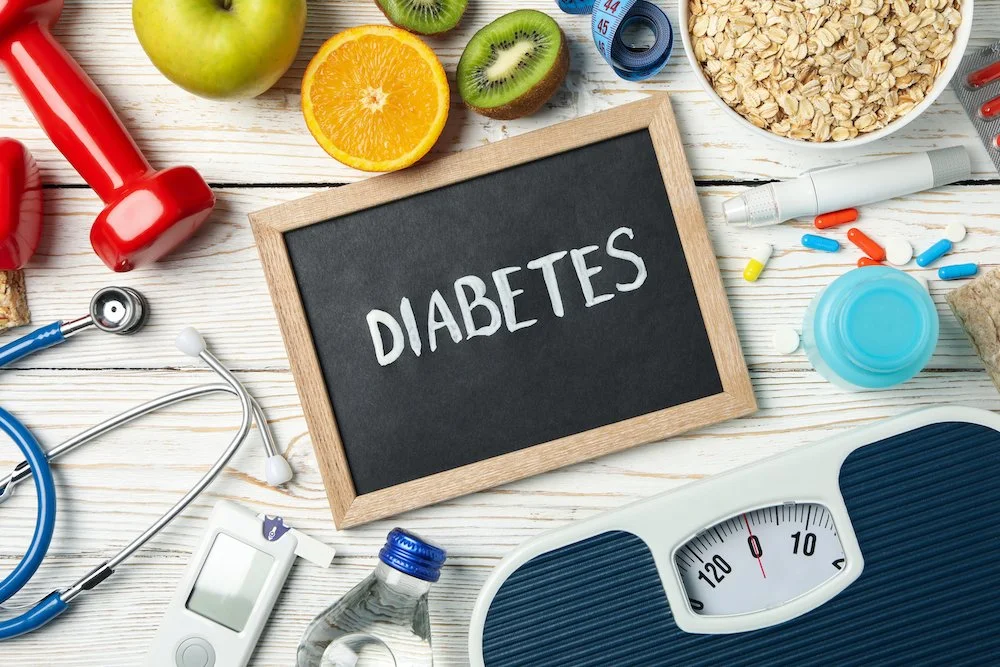
Diet for Diabetic Seniors: Best Foods to Eat and Avoid
One of the topics that you should have sufficient information about is diabetes in the elderly. In fact, more than 10 percent of the elderly over the age of 60 suffer from this condition. According to doctors, the main reasons that cause diabetes in the elderly are lack of exercise and lack of proper nutrition. Keep reading this article from humanhealthmag to get comprehensive information about the diet for diabetic seniors. In the following, we will introduce diabetes-friendly foods for seniors, which in addition to being nutritious, are easy to swallow foods for elderly and suitable for the digestive system of these people.
The Importance of Food and Nutrition for Older People Living with Diabetes
Diabetes is one of the most common diseases worldwide, which is caused by the lack of sufficient insulin in the blood. When there is not enough insulin in a person’s blood, the body’s blood sugar level increases significantly. This increase in blood sugar can cause various diseases in the body. This disease has no specific age limit and can affect people of any age, including children and the elderly. In fact, diabetes has nothing to do with a person’s gender or age. However, the elderly are more susceptible to this disease due to their weakened immune system.
Fortunately, medical science has made significant progress in this field, so that it has provided doctors with many ways and methods to treat this condition and prevent it. One of the most common and best ways to treat diabetes is to follow nutrition tips.
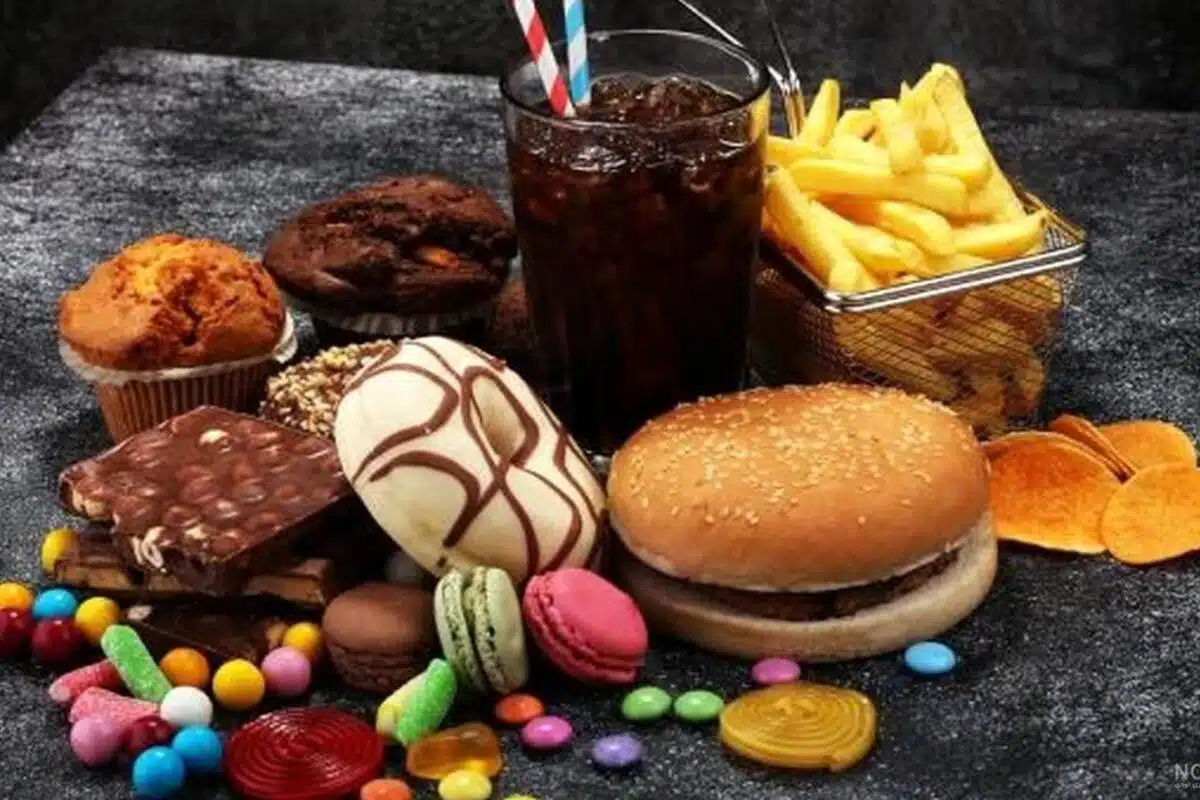
As diet for Alzheimer’s patients, elderly diabetics should have a proper diet in order to improve their physical condition and prevent the disease from getting worse. The importance of proper diet for diabetic seniors can greatly affect the physical and mental condition of an elderly person with diabetes. According to doctors, as people get older, they should be more careful about their food and drink. In many cases, having a routine and principled diet can control a person’s diabetes, so you should not neglect nutrition.
But perhaps you have asked yourself which foods are beneficial or harmful for elderly people with diabetes? Do you have enough knowledge of these foods? In the following, you will learn about foods older adults with diabetes should & shouldn’t eat.
Diet for Diabetic Seniors: Best Foods for elderly with Diabetes
Diet for diabetic seniors should be comprehensive and complete in order to meet all the needs of their body. About 45 to 65 percent of the daily calories of elderly people are carbohydrates. In addition, about 25 to 35 percent of the daily calories of elderly people are fats. Elderly people with diabetes should also provide their body with the protein it needs.
In fact, a suitable diet for diabetic seniors includes a combination of high-fiber carbohydrates, protein, and healthy fats that will help maintain the elderly’s blood sugar at a stable level.
Healthy Carbohydrates
There are different types of carbohydrates, and for the elderly, it is better to have a large portion of fibrous carbohydrates. Complex carbohydrates are preferable to simple carbohydrates in the diet of elderly diabetics because they are digested more slowly and raise blood sugar levels less quickly. They also contain more fiber and nutrients. Simple carbohydrates can also enter the body of the elderly and will not harm them, but fibrous carbohydrates have high therapeutic properties due to their high fiber content. Nutritious carbohydrates include:
| Food Group | Examples | Features |
| Legumes | Lentils, kidney beans, chickpeas, black beans | Rich in protein and fiber, helps control blood sugar with moderate consumption) |
| Whole grains | Barley, oatmeal, buckwheat, brown rice | Effective in regulating blood sugar |
| Fresh fruits | Apples, oranges, berries | Low glycemic index, it is better to limit the consumption of dried fruits due to high sugar |
| Vegetables | Cabbage, celery, cucumber, cauliflower, eggplant, broccoli, carrots | High fiber, low calories |
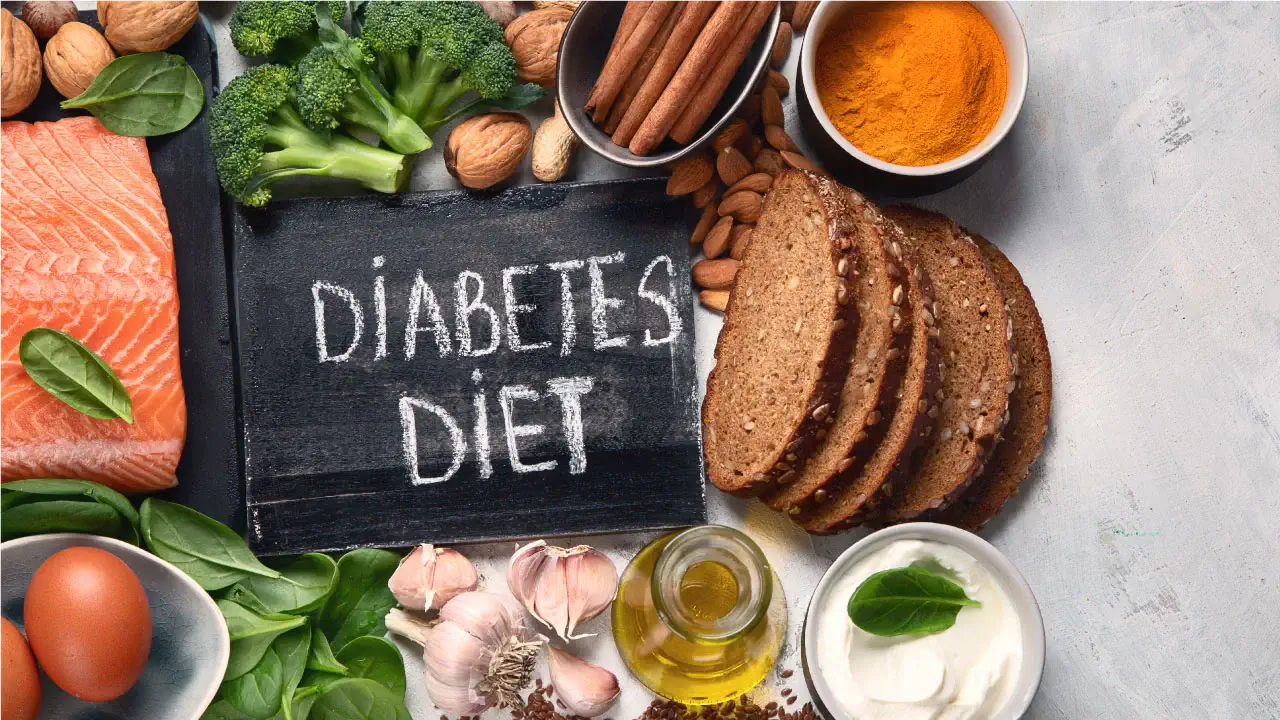
Protein
Protein is responsible for building and repairing various tissues in the body, such as muscle tissue. Getting enough protein is more important between the ages of 40 and 80, because the more we get older, the more protein tissues are destroyed.
A diet for diabetic seniors rich in protein helps them stay full for longer, so they are less likely to snack on unhealthy foods. If the body does not have carbohydrates, it can use protein as an energy source; It should be noted that protein increases blood sugar levels at a slower rate than carbohydrates.
Note: Protein intake for elderly per day is 1 to 1.2 grams of protein per kilogram of body weight. That is, if an elderly person weighs 68 kilograms, it is better to get 68 to 82 grams of protein per day. The best sources of protein for diabetic seniors are as follows:
| Food Group | Examples | Features |
| White meat | Chicken and turkey without skin | A good source of protein, less fat than high-fat meats |
| Fish | Fish without skin | A rich source of omega-3, good for heart health |
| Lean red meat | Lean beef | High protein, less saturated fat |
| Low-fat dairy products | Low-fat yogurt, low-fat cheese | High calcium with less fat |
| Eggs | Eggs | A source of complete protein and essential nutrients |
| Nuts and seeds | A variety of nuts and seeds | Rich in healthy fats and nutrients, moderate consumption due to high calories |
Healthy and Balanced Fats
There is a misconception among people that diabetic seniors should not use fat in their diet, while this belief is not true! This is while the elderly body also needs fat to function properly. Fat is digested very slowly and causes a feeling of fullness between meals. It is also worth noting that it increases blood sugar levels to a very small extent.
However, remember that excessive consumption of fat can lead to insulin resistance and subsequently cause diseases such as heart problems, also fats are high in calories and excessive consumption of these foods can lead to weight gain in the elderly. Read weight gain tips for elderly in this article from Human Health Magazine.
Given the conditions explained, our suggestion is to consume fats that help the heart health of the elderly in moderate amounts and in moderation. Foods containing beneficial fats for the elderly are as follows:
| Food Group | Examples | Features |
| Vegetable oils | Olive oil, almond oil, chia seeds | Source of heart-healthy fats, help reduce bad cholesterol |
| Avocado | Avocado | Rich in healthy fats, fiber, and antioxidants |
| Nuts | Nuts, especially walnuts | Healthy fats and high in calories, and are recommended to be consumed in moderation |
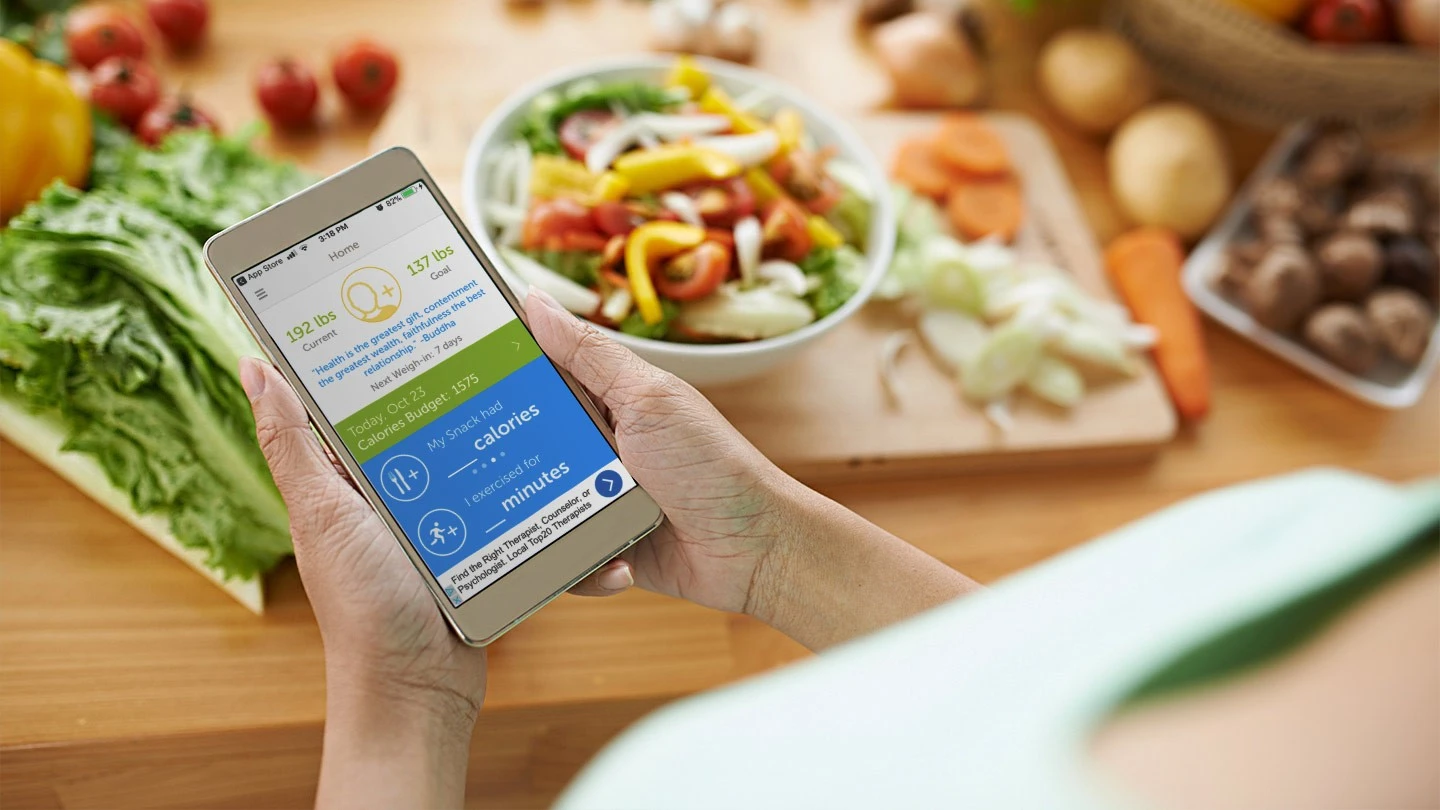
So with these interpretations, the beneficial foods for diabetic seniors are:
- For drinks, water is always the best choice. In addition, tea and coffee without sugar can also be suitable options. Be sure to avoid sugary drinks and even diet drinks. Because studies have shown that diet drinks may have a negative effect on insulin levels.
- Onions and garlic can increase the body’s insulin levels, causing glucose metabolism in the liver.
- Try to include vegetables that contain beta-carotene, antioxidants, vitamins E, C in your diet.
- Consuming fruits such as citrus fruits, berries, kiwi, cantaloupe, etc. can provide a lot of vitamin C to the body.
- Oatmeal is full of soluble fiber, which helps reduce the absorption of sugar in the blood.
- Brown rice has more fiber than white rice and reduces blood sugar fluctuations.
- Quinoa is a high-protein, high-fiber whole grain that helps control blood sugar levels.
- Whole-wheat bread contains more fiber and nutrients than white bread, and rye bread is high in fiber and has a lower glycemic index.
- Legumes
- Beans are good sources of fiber, protein, and minerals that help slow the absorption of sugar.
- Lentils are high in fiber and protein and help control blood sugar.
- Vegetables and fruits
- Dark leafy greens like spinach and kale are packed with antioxidants and minerals. Broccoli and cauliflower are high in fiber and nutrients with a low glycemic index, and bell peppers are packed with vitamin C and antioxidants.
- Seniors can include low-fat dairy products in their diet.
- Eating fish regularly and weekly can reduce the risk of developing type 2 diabetes by about 50 percent. Fatty acids and omega-3s found in fish can also provide body fat. Soy is a food that can affect body fat in addition to blood sugar.
Diet for Diabetic Seniors: Foods Seniors with Diabetes Should Avoid Eating
What foods are bad for people with diabetes? This group of people should avoid consuming harmful foods in order to control their blood sugar and improve their physical condition. For diabetic patients, the amount of food consumed and the size of the servings are very important. That is, even healthy foods should be consumed in controlled amounts to prevent blood sugar fluctuations.
At the same time, we emphasize that any diet plan for diabetic elderly should be adjusted under the supervision of a doctor or nutritionist. It is better to know other points that should be considered in the nutrition of diabetic seniors and the foods to avoid with diabetic seniors.
- Excessive consumption of fat, saturated fats can aggravate the symptoms of diabetes in a person’s body.
- Meals should be eaten regularly and balanced.
- If the elderly person is overweight, he or she should take steps to lose weight.
- With the help of a doctor, the number of meals and calories required by the elderly person’s body daily should be checked.
- Strictly avoid consuming foods that are high in sodium & foods to increase sodium levels in elderly
- Starchy vegetables with a high glycemic index such as potatoes, corn, green peas (these vegetables cause a rapid increase in blood sugar and should be consumed in small quantities)
- Sweet fruits and dried fruits
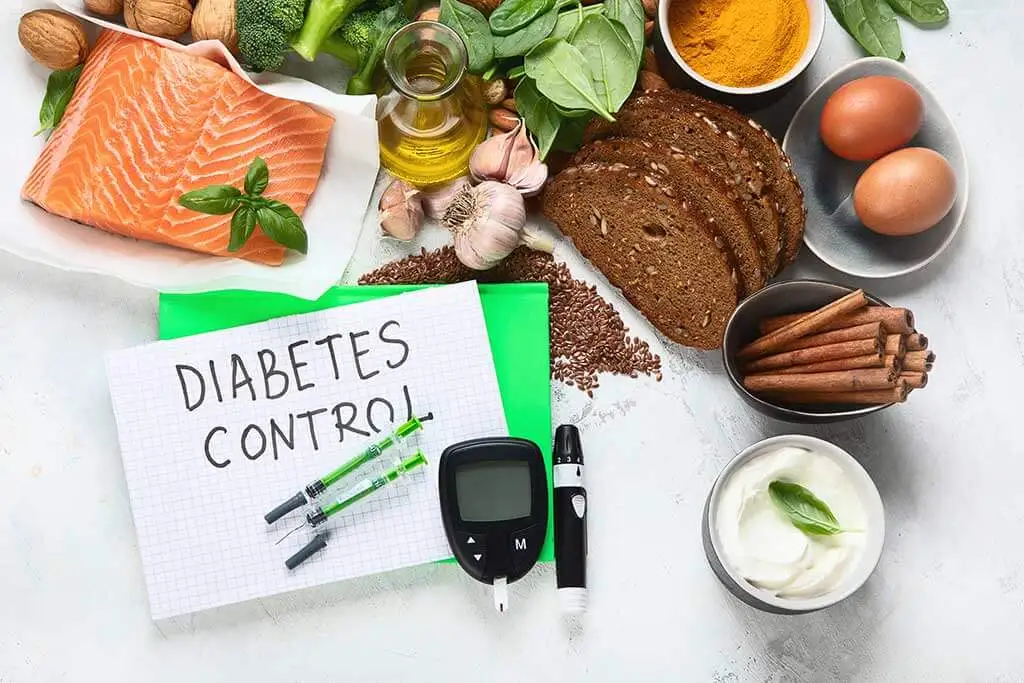
- Refined grains, white breads, white rice (have low fiber and a high glycemic index and can cause blood sugar fluctuations)
- High-fat or sweet dairy products such as milk and full-fat dairy products and sweetened flavored yogurts (can be high in saturated fat, which is bad for heart health)
- Sugars and sweets such as candy, cookies, cakes and chocolate (usually contain high calories and little nutritional value)
- Sugar drinks such as sodas, fruit juices, and energy drinks (can sharply increase blood sugar levels)
- Fried and fatty foods
- Processed foods such as sausages and hot dogs (usually contain hidden sugars and additives that (can harm blood sugar control)
- Fast food, high-carb foods like French fries and white pasta (often high in calories, fat, and salt, and low in nutrients)
- Alcoholic beverages, especially in large quantities
- High-salt foods like chips and salty snacks (usually high in sodium, which can lead to high blood pressure)
- Foods containing trans fats, like some margarines and fried foods
Healthy Plate, or Diabetic Plate for Diabetic Seniors
In diabetes, it is not only important what seniors eat, but also how much they eat. The diabetic plate is a way to easily get enough of all the nutrients you need.
- The first step is to choose a plate (10 cm in diameter). Fill half of the plate with non-starchy carbohydrates, which do not raise blood sugar levels suddenly and too much. These can include carrots, cabbage, eggplant, broccoli and cauliflower, celery and cucumber.
- Fill a quarter of the plate with lean proteins such as: eggs, legumes, nuts, fish such as tuna, salmon and low-fat cheese.
- Fill the remaining quarter of your plate with carbohydrates such as fruits, whole grains, milk, yogurt, and other dairy products.
Sample Meal Plan for Seniors with Diabetes
| Breakfast | Morning Snack | Lunch | Afternoon Snack | Dinner | Bedtime snack |
| A bowl of low-fat yogurt with a few strawberries or sliced apples | A handful of nuts such as almonds or walnuts | A salad of fresh vegetables (such as lettuce, cucumber, tomato) with olive oil and lemon | A piece of low-sugar fruit such as an apple or orange | Homemade vegetable soup | 1 cup of unsweetened herbal tea |
| A slice of whole-grain bread with a little almond butter or avocado | A piece of fruit | A piece of baked or grilled chicken or fish | A handful of pistachios | A piece of fish or lean meat with steamed vegetables such as broccoli or carrots | 1 glass of low-fat milk |
| A cup of unsweetened tea or coffee | A cup of brown rice or quinoa | A slice of whole-grain bread | |||
| Oatmeal with berries and a dash of cinnamon
|
A glass of low-fat milk | Green salad with grilled chicken and olive oil, A slice of whole grain bread | An apple with a little peanut butter | Grilled salmon with brown rice, Steamed vegetables | A cup of low-fat Greek yogurt |
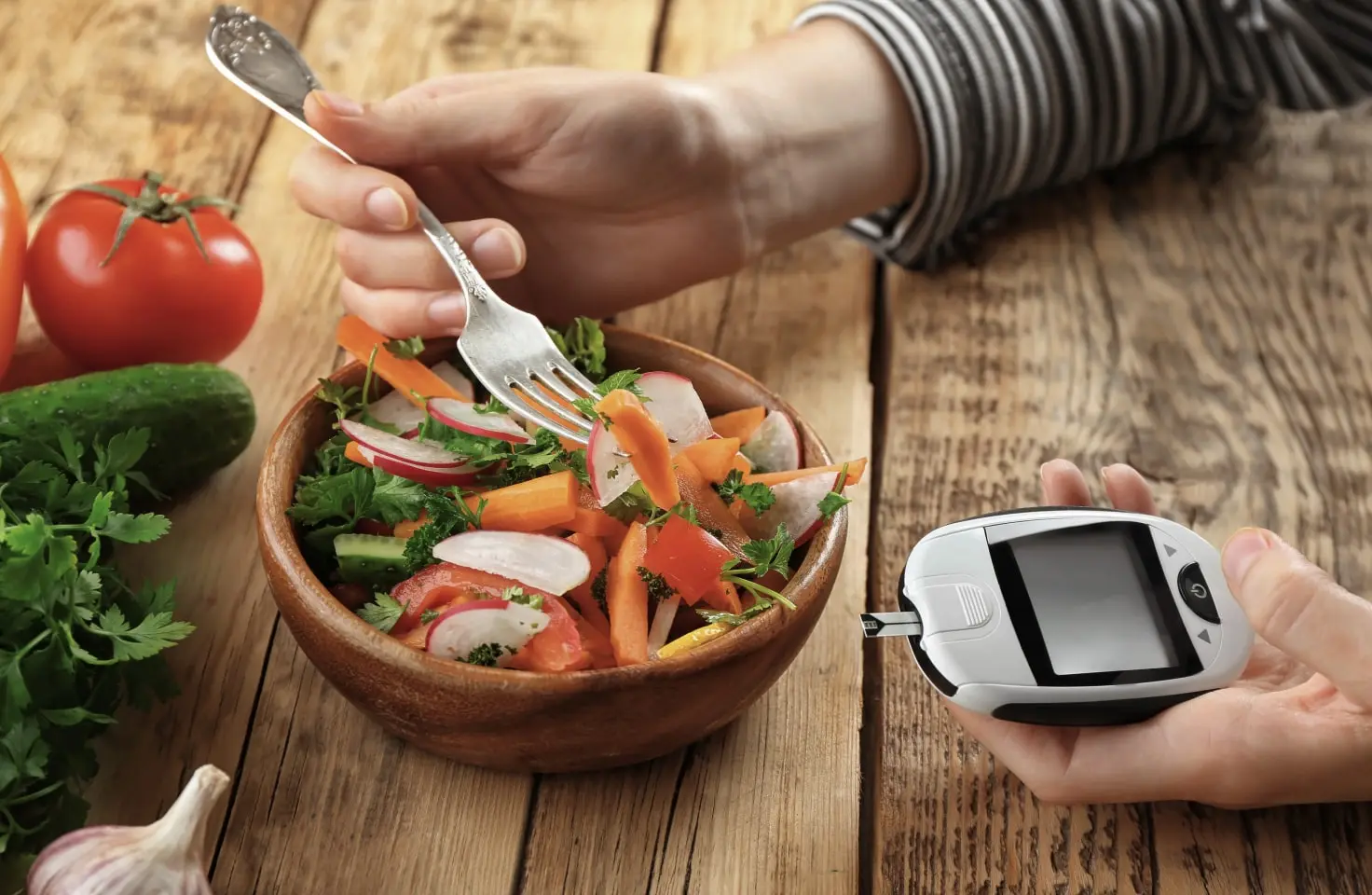
8 Practical Tips for a Diet for Seniors with Diabetes
- As you age, your calorie needs will likely decrease, while your nutrient needs will stay the same or increase. Eating nutrient-rich foods will help you get the vitamins, minerals, protein, carbohydrates, and fats you need.
- Fiber is essential for a healthy digestive system. Include fiber-rich foods at every meal to prevent constipation and other problems. Soluble fiber is especially important for maintaining healthy cholesterol levels.
- Always check the labels on prepackaged foods. Choose options that contain less added sugar, saturated fat, and salt — and more fiber, vitamins, and minerals.
- You may find it hard to get some nutrients in your diet, especially if you have to avoid certain foods. You may need to take a senior food supplement, but before you do anything, ask your doctor if you should take a vitamin or mineral supplement, such as calcium, vitamin D, magnesium, or vitamin B-12. These particular vitamins are often not absorbed or consumed in sufficient amounts by older Americans.
- As you age, you may not notice your thirst. Make sure you drink fluids regularly. Drink eight 8-ounce glasses of water a day. You can also get some water from juice, tea, soup, or even fruits and vegetables that are high in water.
- Eating small, frequent meals helps to better control blood sugar and prevent hunger pangs. Eating meals at regular times also helps to stabilize blood sugar levels.
- Dairy foods like butter and high-fat animal products like sausage can cause clogged arteries and heart disease in older people with diabetes, so it’s best to replace these foods with lean meats and olive oil.
- Fried foods like fried chicken and French fries are also not a good choice for older people with diabetes, as they are fried in unhealthy oils. It is recommended to use boiling, steaming, and grilling methods to cook foods for the elderly.
Concluding Remarks
Always an abnormal increase in blood sugar indicates a lack of insulin in the body. If there is enough insulin in the blood, the body’s blood sugar is always in a balanced state. If the body shows resistance to the available insulin, the risk of developing type 2 diabetes increases.
Diabetes is one of the common diseases among the elderly, so you can take the necessary measures to improve this disease by having a proper diet for diabetic seniors. In this article from Human Health Magazine, we tried to introduce you to foods that are useful and harmful for diabetic elderly people in addition to diabetes.
Along with proper nutrition, one of the most important measures to control diabetes is to do more physical activity. In addition to its positive effect on diabetes management, regular exercise also reduces the risk of heart problems. In fact, exercise helps the body use insulin more effectively by increasing the amount of glucose consumed by the muscles.

Frequently Asked Questions
How can diabetes be prevented?
Measuring blood sugar, taking timely medication, and having a proper and principled diet can prevent diabetes.
What effect can use of fibrous foods have on the digestive system of the elderly?
Feeling full, preventing overeating, stomach activity, eliminating substances due to high volume, etc. are some of the benefits of using fiber.
What are the best carbohydrates for the body?
Bulgur, oatmeal, brown rice, and corn are among the best carbohydrates for the body of the elderly.
What foods should diabetic seniors avoid?
One of the most important foods that diabetic seniors should avoid is sugar, because sugar increases blood glucose levels suddenly and leads to hyperglycemia. It is also better to avoid foods such as cakes, chocolate, soda, honey, etc.
